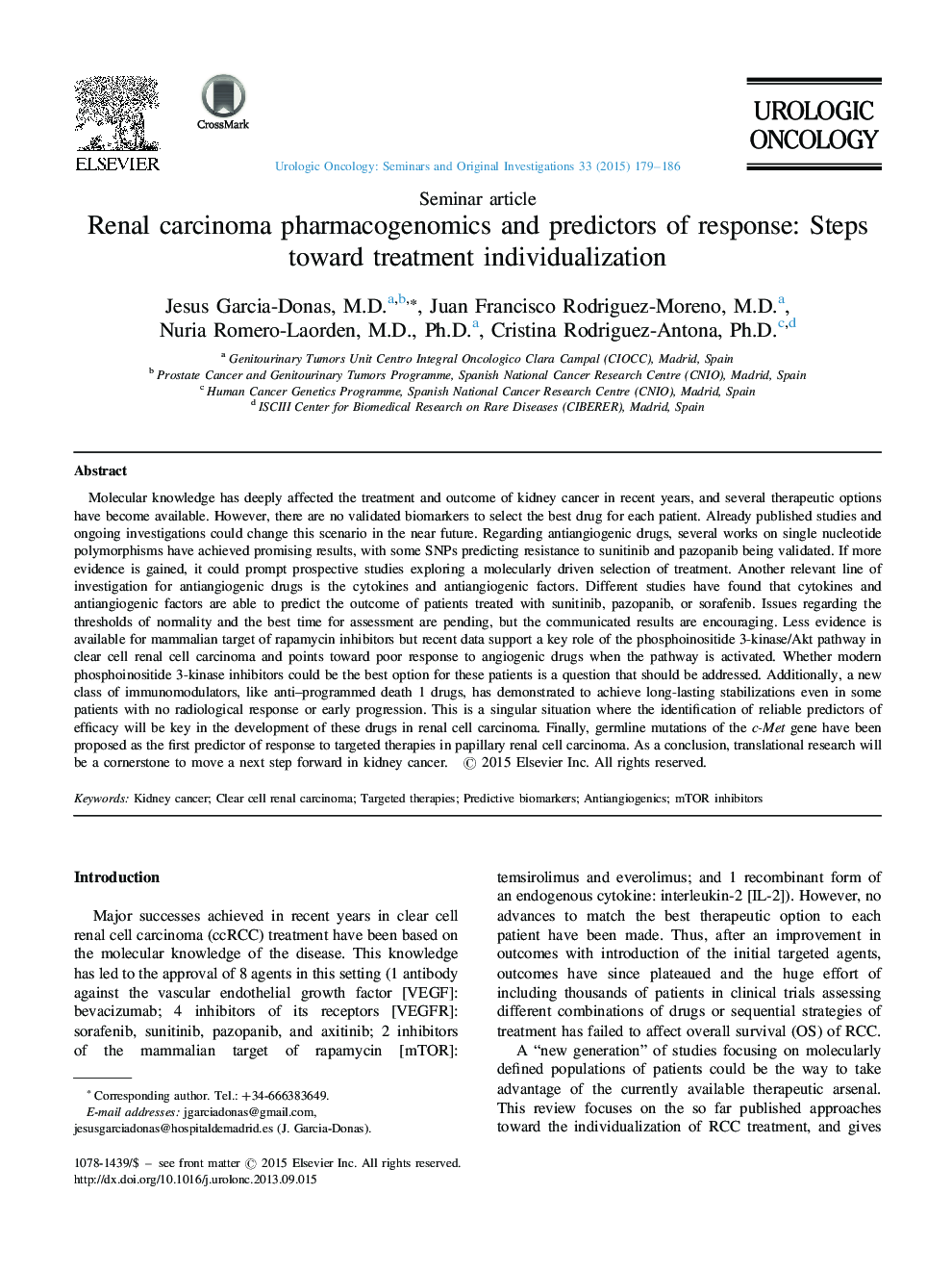| کد مقاله | کد نشریه | سال انتشار | مقاله انگلیسی | نسخه تمام متن |
|---|---|---|---|---|
| 3999667 | 1259347 | 2015 | 8 صفحه PDF | دانلود رایگان |

Molecular knowledge has deeply affected the treatment and outcome of kidney cancer in recent years, and several therapeutic options have become available. However, there are no validated biomarkers to select the best drug for each patient. Already published studies and ongoing investigations could change this scenario in the near future. Regarding antiangiogenic drugs, several works on single nucleotide polymorphisms have achieved promising results, with some SNPs predicting resistance to sunitinib and pazopanib being validated. If more evidence is gained, it could prompt prospective studies exploring a molecularly driven selection of treatment. Another relevant line of investigation for antiangiogenic drugs is the cytokines and antiangiogenic factors. Different studies have found that cytokines and antiangiogenic factors are able to predict the outcome of patients treated with sunitinib, pazopanib, or sorafenib. Issues regarding the thresholds of normality and the best time for assessment are pending, but the communicated results are encouraging. Less evidence is available for mammalian target of rapamycin inhibitors but recent data support a key role of the phosphoinositide 3-kinase/Akt pathway in clear cell renal cell carcinoma and points toward poor response to angiogenic drugs when the pathway is activated. Whether modern phosphoinositide 3-kinase inhibitors could be the best option for these patients is a question that should be addressed. Additionally, a new class of immunomodulators, like anti–programmed death 1 drugs, has demonstrated to achieve long-lasting stabilizations even in some patients with no radiological response or early progression. This is a singular situation where the identification of reliable predictors of efficacy will be key in the development of these drugs in renal cell carcinoma. Finally, germline mutations of the c-Met gene have been proposed as the first predictor of response to targeted therapies in papillary renal cell carcinoma. As a conclusion, translational research will be a cornerstone to move a next step forward in kidney cancer.
Journal: Urologic Oncology: Seminars and Original Investigations - Volume 33, Issue 4, April 2015, Pages 179–186